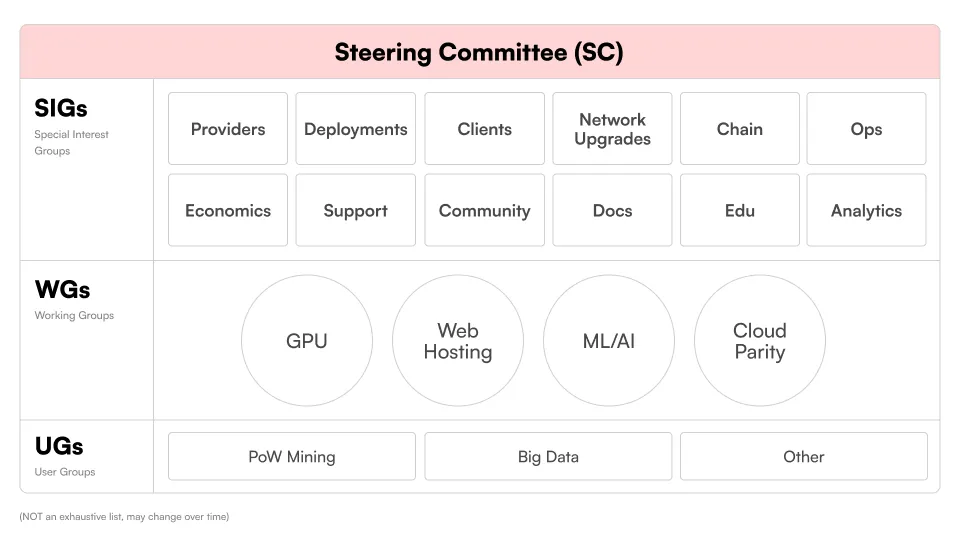Motivation
The Akash Network was created approximately two years ago to decentralize cloud infrastructure and put it in the hands of the people. It’s now run by a network of globally distributed node operators who secure the Akash blockchain and provide cloud-grade server space for tenant applications. The source code developed by Overclock Labs has been open since inception, and now we are taking the next step of opening up the process that produces it. Removing single points of failure from one company makes Akash Network more resilient to institutional attack vectors.
The development of the Akash Network involves multiple steps that are managed by Overclock Labs. The process begins by determining user needs and creating technical specifications based on them. Once the specification is made, it is implemented by a developer and then released to the public. Afterward, validators vote to accept the new code and upgrade their systems with the latest version of Akash Node.
The process has functioned well so far, and Overclock achieved great success with shipping two major mainnet upgrades that brought us Persistent Storage (https://akash.network/blog/akash-network-unlocks-persistent-storage-through-mainnet-3-upgrade/), and IP Leasing (https://akash.network/blog/introducing-ip-leases-on-akash-network/). But as the saying goes, “If you want to go faster, go alone; if you want to go far, go together.” We believe that by opening up the process, we can achieve our goal of radical decentralization faster and further.
Akash should utilize the strong developer community and open organization tools available to reach its potential. The Akash community is much larger than Overclock’s employee pool. By allowing people to participate voluntarily, we can leverage their skills and values to help achieve the goal of executing our product strategy.
Summary
We propose a set of community groups inspired by successful projects like Kubernetes (https://www.kubernetes.dev/). These groups are open to anyone who wants to join, except for Committees that already have designated members.

Special Interest Groups (SIGs)
SIGs are long-term groups that will be present for the project’s duration. SIGs are dedicated teams working on specific parts of the Akash Network. They help to define and create products and features, as well as provide ongoing support for them.
Working Groups (WGs)
Working Groups (WGs) are community groups that collaborate on large-scale initiatives that involve multiple Special Interest Groups (SIGs). They do not develop or create projects but rather define major projects with aspects across the whole system, potentially involving external partners and relevant parties. A Working Group may operate for a short time rather than being a permanent group like SIGs.
User Groups (UGs)
UGs help people communicate openly, find topics that can become WGs or SIGs, discuss broad use cases (like ML/AI or Big Data), and discuss ideas we don’t prioritize for product development according to the current strategy.
Committees
A committee is a designated group of people who discuss sensitive topics. They are expected to be transparent in their work, but there may be some circumstances where private conversations are necessary. Some examples of committees include the Steering Committee and special committees such as ‘security’ or ‘code of conduct.‘
Steering Committee
Regular meetings help the Akash Network community operate more efficiently. If needed, it also resolves conflicts. The Steering Committee is a particular SIG that evaluates projects, prioritizes, and assigns them to the proper SIG or WG.